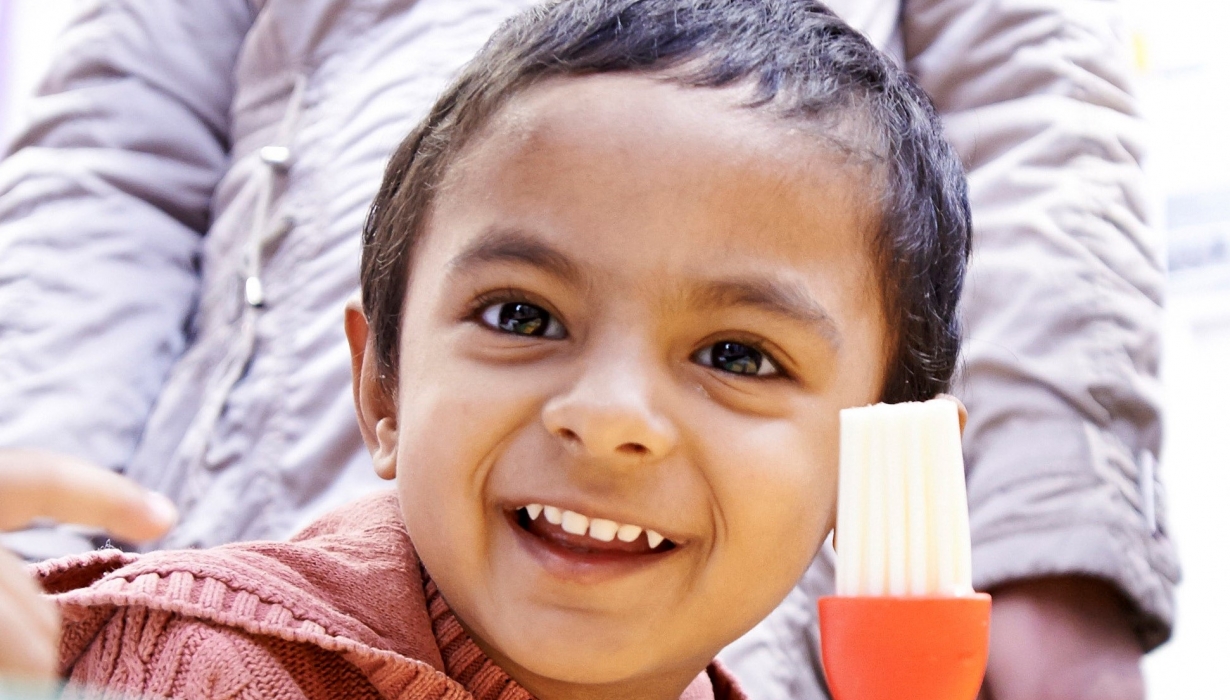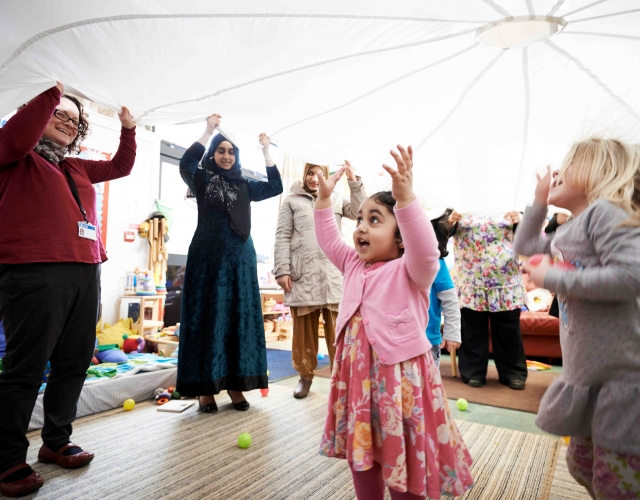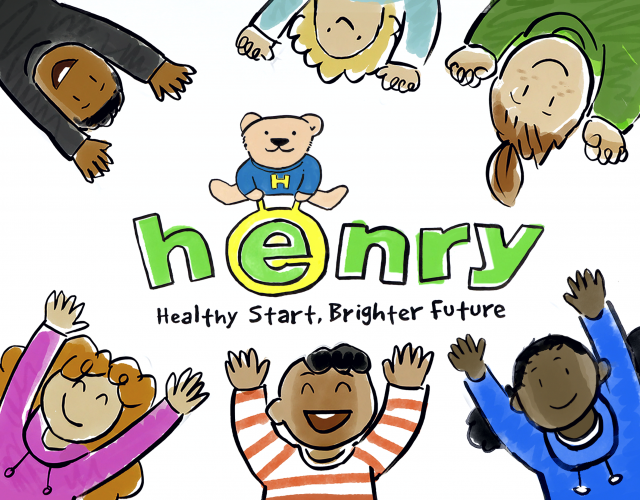Laying the foundations for future health and wellbeing
The foundations for future health and wellbeing are laid in early life. Diet, obesity, physical activity, communication, cognitive development and oral health are all influenced by our first few years. Moreover, all these things are linked - watch our animated explainer video to find out how.
Obesity
Lifelong obesity has its roots in childhood, especially the earliest years. Compared to those with a health weight, infants carrying excess weight are five times more likely to be living with obesity in later childhood, in adolescence and in adulthood. The statistics are shocking. The Health Survey for England indicates that around 10% of children aged 2-4 years are already living with obesity. In addition:
-
nearly 1 in 4 children are carrying excess weight by the time they start school
-
only 1 in 20 children who start school with obesity will return to a healthy weight by the age of 11 (see graphic below)
-
conversely, children who are a healthy weight at age 5, are highly likely to remain so at age 11 and beyond
-
studies show that obesity in teenagers overwhelmingly tracks into adulthood
Predicted BMI status at 11 yrs based on BMI status at 5 yrs
Graphic adapted from Changes in weight status of children between the first and final years of primary school. Public Health England 2017
Children with obesity are at greater risk of serious long term health problems, including cardiovascular disease, diabetes, and cancer. Type 2 diabetes – typically an adult disease – is increasingly being diagnosed among UK children in the UK. Signs of fatty liver disease and arteriosclerosis are now being seen in children too.
The emotional consequences of obesity in children are real and immediate. Obese children experience teasing, bullying, discrimination, low self-esteem, anxiety and depression. 2019 research found that obesity and poor mental health are closely linked in children as young as 7, and are likely to develop hand-in-hand throughout childhood.
Physical activity
Physical activity can have a significant impact on health and wellbeing both in childhood and into adulthood. Children who are encouraged to be active at an early age have improved cardio-metabolic health (reduced risk of cardiovascular disease including type 2 diabetes, hypertension, and obesity). Active children are also able to sleep better, are more able to concentrate, learn and have improved academic achievement, have greater self-esteem, confidence and social skills.
Nutrition
Children's diet during the early years significantly influences their growth and development and also impact on their future health as adults. Early nutrition is linked to the incidence of many common childhood conditions such as diarrhoea, dental caries and iron and vitamin D deficiencies. It may also influence the risk in adult life of conditions such as coronary heart disease, diabetes and obesity.
Brain development
The earliest experiences, starting in the womb, shape a baby’s brain development. The brain is able to absorb information and adapt to its surroundings. Environmental influences – including relationships, nutrition, stress and poverty – shape a child’s brain affecting their later health and wellbeing, as well as their social and intellectual development. Positive early experience is therefore vital to ensure children are ready to learn, ready for school and have good life chances.
Oral Health
Tooth decay is the most common chronic childhood disease and yet is almost entirely preventable. The burden of tooth decay on children is considerable – causing pain and distress and negatively affecting sleep and self-confidence. Teeth are most vulnerable to decay during the first 2-4 years after eruption; this is a critical period when parents and carers can make a real difference to children’s oral health.


Speech and language
Language development helps children to develop a range of cognitive skills that are crucial for their development, including working memory and reading skills. This can help prepare children so that they are ready to learn at 2 and ready for school at 5. Parents have a huge influence on their child’s early learning, for example, talking and reading to a baby can help stimulate language skills right from birth.
Breastfeeding
Breastfeeding has significant benefits for both the mother and child. Feeding in the first 6 months of life has a long term impact on the health and wellbeing of the child. Children who are breastfed have reduced risk of diarrhoea and vomiting, respiratory, ear and urinary tract infections, asthma and eczema. Breastfed babies are also at reduced risk of other conditions and long term illnesses such as sudden infant death syndrome, leukaemia, diabetes, obesity, coeliac disease and cardiovascular disease.
For the mother, breastfeeding reduces the risk of breast and ovarian cancer, osteoporosis, obesity and cardiovascular disease.

- What HENRY offers
- How we support a healthy, happy childhood and the services we offer

Our services are evidence-based, effective, flexible, responsive and innovative

Investing in early years services improves outcomes for babies and children
A commissioner guide to HENRY family support services, training and delivery models


